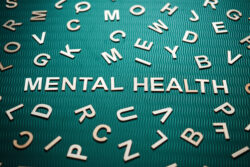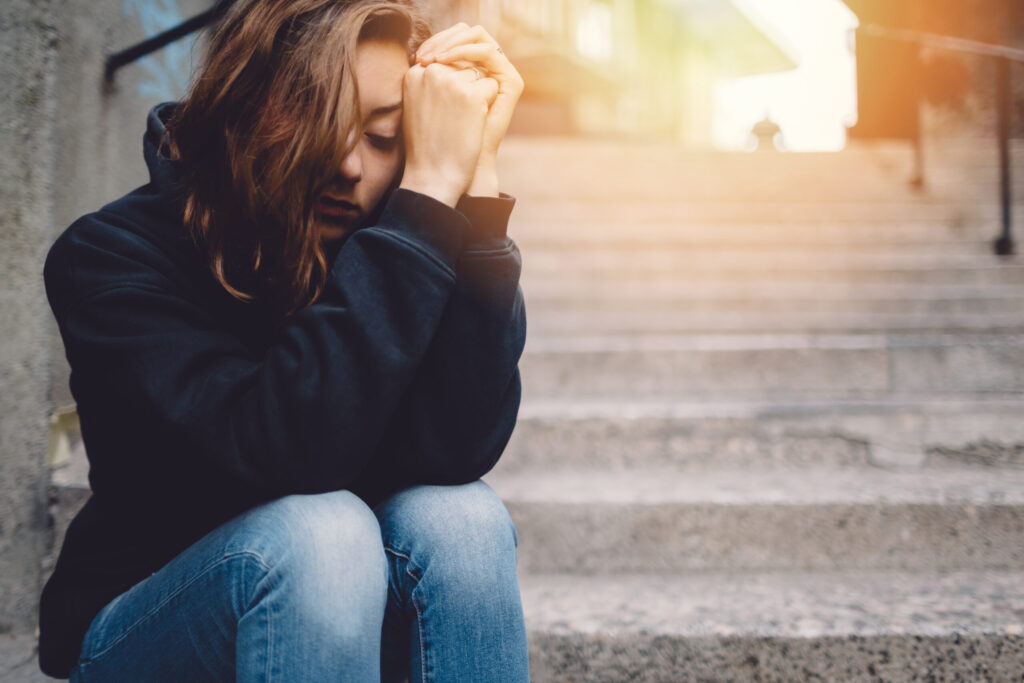Is Human Trafficking Prevalent in New Jersey?

Heartbreakingly, human trafficking is a widespread problem in the United States, but not one which is discussed often despite its prevalence. It is a traumatizing experience for anyone to be a victim of and requires years of intentional therapy and recovery to overcome.
All of the states have problems with illicit trade, but New Jersey, due to its geographic location, finds itself ranking near the top in cases of human trafficking.
What is human trafficking
According to the Blue Campaign, “Human trafficking involves the use of force, fraud, or coercion to obtain some type of labor or commercial sex act.” Traffickers do not discriminate, and anyone – men, women, and children – regardless of age or race, can be a victim.
Sometimes it can be hard to wonder how anyone may fall into human trafficking, but traffickers use a number of manipulating methods to coerce their victims. This may include a romantic relationship that turns into a nightmare situation, violence, or the promise of a high-paying job. Rarely do these promises hold any weight, and often the victim finds themself stuck in a terrifying situation.
In addition, victims do not often seek help for themselves as a result of fear of law enforcement, language barriers and/or fear of their traffickers. This makes it particularly hard to identify and help victims as they are often hidden in plain sight.
However, certain signs of human trafficking may indicate someone is a victim and being forced to work against their will. Signs of a human trafficking victim include:
- A juvenile engaged in commercial sex acts
- A child who stops attending school
- Someone who seems to be being denied basic human necessities, including proper food, water, hygiene and sleep
- Someone who is unable to freely leave their home or seems to have a number of strict security measures placed on them
- Someone who has shown sudden, uncharacteristic changes in their behavior
- Someone who is often accompanied by another individual to whom he/she defers or takes instruction/cues from
- A highly fearful, timid or quiet individual who displays additional signs of abuse, including bruising and confusion/signs of mental abuse
- An individual who lacks personal possessions
If these signs are apparent, it is important to get in touch with someone who can help. The Human Trafficking Hotline takes calls routinely for anyone concerned they may have identified a victim of human trafficking, while treatment centers like Pyramid Healthcare can provide long-term recovery options for those who have been the victim of trafficking.
What are the statistics of human trafficking in New Jersey?
Each state has its own list of illicit activities that go on, and unfortunately, human trafficking usually ranks just below weapons and drugs in the illicit trading business. Certain states see more cases of human trafficking than others, but none are immune.
Specifically looking at New Jersey, this state identified 151 cases of human trafficking in 2021, with 466 victims involved in these cases, as many victims can be involved in just a single case.
Of these cases, according to the same source, 112 victims were forced into sex work, which included illicit massage/spa business, pornography and residence/hotel-based commercial sex work, to name a few.
Of the demographics, victims were primarily adult females (117 in this report), but 18 males were reported as well. 50 minors were included and 35 of the total reports included individuals who were considered foreign nationals.
According to the FBI, “New Jersey [is considered] to be a “hub” for [human trafficking] activity, in part because the state is positioned between several major metropolitan areas including New York, Baltimore, and Philadelphia.” For this reason, the state has implemented several new law enforcement strategies and plans to help protect victims and prevent future ones.
Is help available for victims?
One of the most common myths regarding human trafficking is that victims will come forward and seek the help they need – this, unfortunately, is simply untrue and many victims of human trafficking do not, in fact, come forward and ask for rescue. They are often either too afraid or have been manipulated into believing help is really not available.
In order to prevent victims from suffering for long periods of time, it is up to us – the outside observers – to know the signs of human trafficking and to contact the right tip lines when we suspect we may have identified a victim(s).
Recovery for human trafficking victims
If you have been a victim of human trafficking and require any kind of support, treatment or recovery. Pyramid Healthcare is here to help. Contact us to get in touch with a mental health professional anytime by calling 888-694-9996 or contacting us online to learn more.
Heartbreakingly, human trafficking is a widespread problem in the United States, but not one which is discussed often despite its prevalence. It is a traumatizing experience for anyone to be a victim of and requires years of intentional therapy and recovery to overcome.
All of the states have problems with illicit trade, but New Jersey, due to its geographic location, finds itself ranking near the top in cases of human trafficking.
What is human trafficking
According to the Blue Campaign, “Human trafficking involves the use of force, fraud, or coercion to obtain some type of labor or commercial sex act.” Traffickers do not discriminate, and anyone – men, women, and children – regardless of age or race, can be a victim.
Sometimes it can be hard to wonder how anyone may fall into human trafficking, but traffickers use a number of manipulating methods to coerce their victims. This may include a romantic relationship that turns into a nightmare situation, violence, or the promise of a high-paying job. Rarely do these promises hold any weight, and often the victim finds themself stuck in a terrifying situation.
In addition, victims do not often seek help for themselves as a result of fear of law enforcement, language barriers and/or fear of their traffickers. This makes it particularly hard to identify and help victims as they are often hidden in plain sight.
However, certain signs of human trafficking may indicate someone is a victim and being forced to work against their will. Signs of a human trafficking victim include:
- A juvenile engaged in commercial sex acts
- A child who stops attending school
- Someone who seems to be being denied basic human necessities, including proper food, water, hygiene and sleep
- Someone who is unable to freely leave their home or seems to have a number of strict security measures placed on them
- Someone who has shown sudden, uncharacteristic changes in their behavior
- Someone who is often accompanied by another individual to whom he/she defers or takes instruction/cues from
- A highly fearful, timid or quiet individual who displays additional signs of abuse, including bruising and confusion/signs of mental abuse
- An individual who lacks personal possessions
If these signs are apparent, it is important to get in touch with someone who can help. The Human Trafficking Hotline takes calls routinely for anyone concerned they may have identified a victim of human trafficking, while treatment centers like Pyramid Healthcare can provide long-term recovery options for those who have been the victim of trafficking.
What are the statistics of human trafficking in New Jersey?
Each state has its own list of illicit activities that go on, and unfortunately, human trafficking usually ranks just below weapons and drugs in the illicit trading business. Certain states see more cases of human trafficking than others, but none are immune.
Specifically looking at New Jersey, this state identified 151 cases of human trafficking in 2021, with 466 victims involved in these cases, as many victims can be involved in just a single case.
Of these cases, according to the same source, 112 victims were forced into sex work, which included illicit massage/spa business, pornography and residence/hotel-based commercial sex work, to name a few.
Of the demographics, victims were primarily adult females (117 in this report), but 18 males were reported as well. 50 minors were included and 35 of the total reports included individuals who were considered foreign nationals.
According to the FBI, “New Jersey [is considered] to be a “hub” for [human trafficking] activity, in part because the state is positioned between several major metropolitan areas including New York, Baltimore, and Philadelphia.” For this reason, the state has implemented several new law enforcement strategies and plans to help protect victims and prevent future ones.
Is help available for victims?
One of the most common myths regarding human trafficking is that victims will come forward and seek the help they need – this, unfortunately, is simply untrue and many victims of human trafficking do not, in fact, come forward and ask for rescue. They are often either too afraid or have been manipulated into believing help is really not available.
In order to prevent victims from suffering for long periods of time, it is up to us – the outside observers – to know the signs of human trafficking and to contact the right tip lines when we suspect we may have identified a victim(s).
Recovery for human trafficking victims
If you have been a victim of human trafficking and require any kind of support, treatment or recovery. Pyramid Healthcare is here to help. Contact us to get in touch with a mental health professional anytime by calling 888-694-9996 or contacting us online to learn more.








